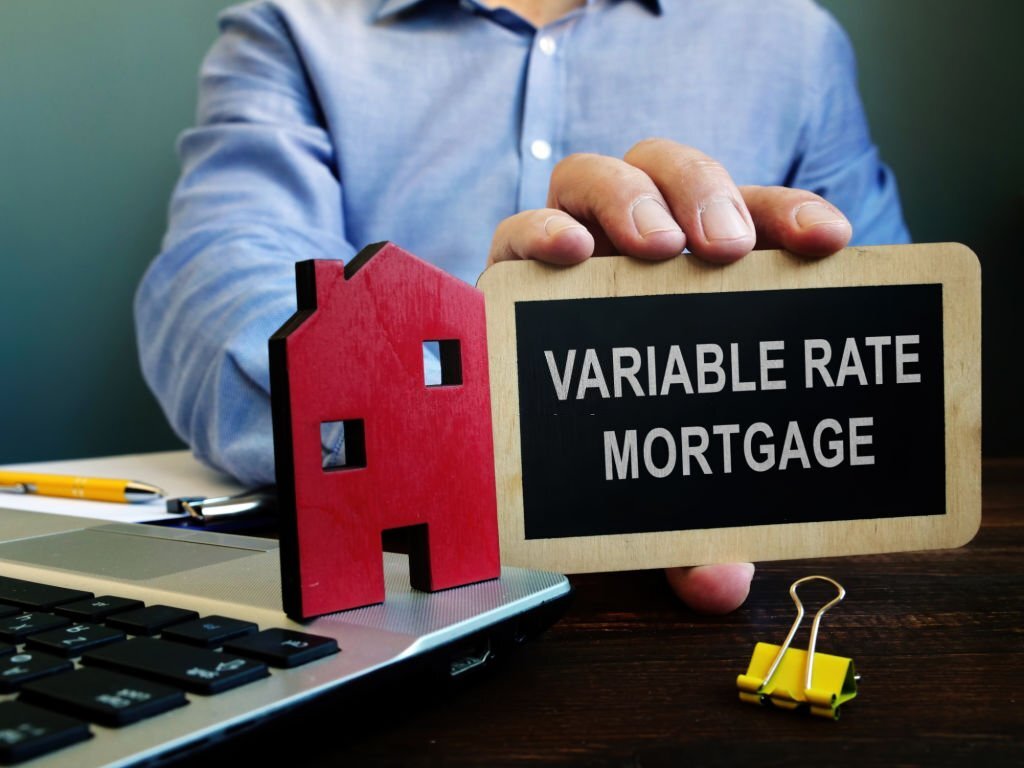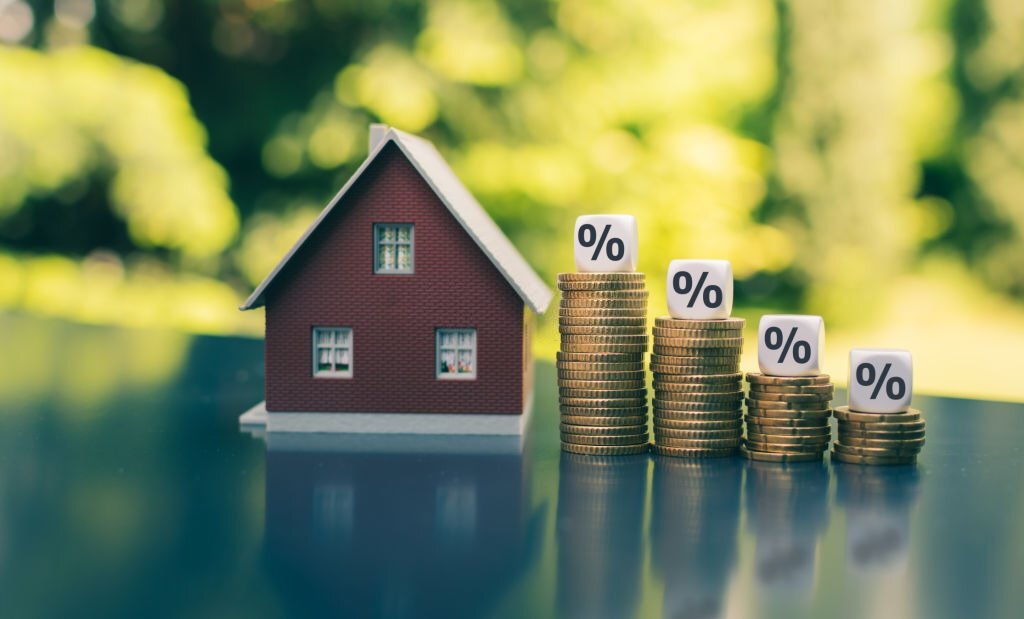When it comes to selecting a mortgage, borrowers are presented with two primary choices: fixed-rate mortgages and variable rate mortgages. To make an informed decision, it is crucial to comprehend the advantages and disadvantages of each option.
Understanding Fixed-Rate Mortgages and Variable Rate Mortgages
Fixed-rate mortgages are loans where the interest rate remains constant throughout the entire term, ensuring stability. This stability provides several benefits to borrowers.
Advantages of Fixed-Rate Mortgages
Firstly, it guarantees payment stability, as monthly payments remain consistent, making budgeting and financial planning easier. Regardless of market conditions or interest rate fluctuations, the mortgage payment remains unchanged. Fixed-rate mortgages protect borrowers from potential interest rate hikes, alleviating the risk of rising mortgage payments and unexpected financial strain. Borrowers who prefer long-term financial planning and desire to avoid the uncertainty of rate fluctuations find peace of mind in the predictability and reliability of fixed-rate mortgages.
Drawbacks of Fixed-Rate Mortgages
However, fixed-rate mortgages also come with certain drawbacks. Initially, they often have higher interest rates compared to variable rate mortgages, as borrowers pay a premium for stability and predictability. If interest rates decline after locking in a fixed rate, borrowers may miss out on potential savings. Although refinancing options are available, they involve additional costs and requirements, which may limit the feasibility of taking advantage of lower rates. Additionally, fixed-rate mortgages lack flexibility during the loan term, restricting borrowers seeking to benefit from falling interest rates or changes in their financial circumstances.
Variable rate mortgages, on the other hand, employ a floating interest rate over part or all of the loan term instead of a fixed rate. The interest payments on these mortgages are adjusted based on a specific benchmark or reference rate, such as the Prime Rate + 2 points. Lenders offer borrowers the option of variable rate interest over the life of the mortgage loan or a hybrid adjustable-rate mortgage (ARM) that combines an initial fixed period with a variable rate that resets periodically thereafter.
Advantages of Variable Rate Mortgages
Variable rate mortgages provide borrowers with flexibility and the potential for savings. When interest rates are low, borrowers can benefit from lower initial rates, reducing their monthly payments compared to fixed-rate mortgages. If interest rates continue to decrease, borrowers may experience further savings over time. Variable rate mortgages are suitable for individuals who are comfortable with market fluctuations and willing to take on some level of risk.
Drawbacks of Variable Rate Mortgages
However, variable rate mortgages also carry inherent risks. As interest rates fluctuate, borrowers may experience an increase in monthly payments, potentially causing financial strain. The uncertainty surrounding future interest rate movements can make it challenging to plan for long-term financial obligations. Borrowers need to assess their risk tolerance and consider their ability to handle potential payment increases throughout the loan term.
Advantages and Challenges of Variable Rate Mortgages

The main advantage of variable rate mortgages is the potential for lower initial interest rates compared to fixed-rate mortgages. If interest rates decrease, borrowers can benefit from the downward movement without the need for refinancing.
Advantages of Variable Rate Mortgages
Variable rate mortgages offer lower initial rates compared to fixed-rate mortgages, which can result in lower monthly payments and potential cost savings. This becomes especially beneficial during periods when fixed rates are high. If the underlying benchmark interest rate decreases, borrowers benefit from lower interest payments, leading to long-term savings. The initial affordability and potential for savings make variable rate mortgages an attractive option for borrowers.
Challenges of Variable Rate Mortgages
However, it is important to note that variable rate mortgages introduce uncertainty into borrowers’ monthly payments. Fluctuations in the underlying benchmark interest rate can lead to unpredictable changes in mortgage payments, making budgeting more challenging. Unlike fixed-rate mortgages, which offer payment consistency, variable rate mortgages are susceptible to interest rate increases. If the underlying benchmark interest rate rises, borrowers’ mortgage payments increase, potentially causing financial strain. Furthermore, variable rate mortgages often have introductory periods with lower rates, followed by adjustments that significantly impact mortgage payments, potentially leading to payment shock.
Borrowers must assess their risk tolerance and future plans before opting for a variable rate mortgage. Variable rate mortgages, also known as adjustable-rate mortgages (ARMs), present an alternative option. Unlike fixed-rate mortgages, variable rate mortgages allow the interest rate to fluctuate over the loan term, providing both advantages and challenges to borrowers.
Flexibility and Adaptability of Variable Rate Mortgages
Additionally, variable rate mortgages provide borrowers with flexibility. In situations where market conditions change or a borrower’s financial circumstances require it, they have the ability to refinance or switch to a fixed rate. This adaptability can be advantageous, allowing borrowers to align their mortgage with their evolving needs.
Advantages and Challenges of Fixed-Rate Mortgages
Advantages of Fixed-Rate Mortgages
Fixed-rate mortgages, characterized by a consistent interest rate throughout the loan term, provide borrowers with stability and certain advantages. When entering into a fixed-rate mortgage, the borrower and lender agree on an interest rate prior to loan disbursement, which remains fixed for the duration of the loan.
Fixed-rate mortgages offer payment stability, protection against rate increases, and peace of mind to borrowers. The monthly payments remain consistent over the loan term, allowing borrowers to easily budget and plan their finances. Knowing the exact amount, they need to pay each month provides a sense of security and predictability.Furthermore, fixed-rate mortgages protect borrowers from potential rate increases. Once the interest rate is locked in, it remains unchanged even if market interest rates rise. This shields borrowers from the risk of facing financial strain due to increasing mortgage payments. The reliability and predictability of fixed-rate mortgages offer peace of mind, particularly for those who prefer long-term financial planning and wish to avoid the uncertainty of rate fluctuations.
Challenges of Fixed-Rate Mortgages
However, fixed-rate mortgages also come with certain drawbacks. One disadvantage is that they often have higher initial interest rates compared to variable rate mortgages. Borrowers may need to pay a premium for the stability and predictability offered by fixed rates. Additionally, if interest rates decline after locking in a fixed rate, borrowers may miss out on potential savings. While refinancing options are available, they come with associated costs and requirements that may limit the feasibility of taking advantage of lower rates. Fixed-rate mortgages also lack flexibility during the loan term. Borrowers seeking to benefit from falling interest rates or adjust their mortgage terms based on changing financial circumstances may find limited options with fixed rates. Refinancing or adjusting the terms of the mortgage may involve additional costs and requirements.
FAQ:
What are the Pros and cons of a fixed-rate mortgage versus a variable rate mortgage:
- Fixed-Rate Mortgage Pros: Stability, predictability, peace of mind, protection against rate increases, easier budgeting. Cons: Higher initial rates, limitedflexibility.
- Variable Rate Mortgage Pros: Lower initial rates, potential rate decreases, flexibility, opportunity for savings. Cons: Uncertainty, exposure to rate fluctuations, potential for higher payments in the future.
What are the Pros and cons of variable rate mortgages:
Variable Rate Mortgage
- Pros: Lower initial rates, potential for rate decreases, flexibility, opportunity for savings.
- Cons: Uncertainty, exposure to rate fluctuations, potential for higher payments in the future.
Which is better, fixed or variable rate mortgage?
The choice between a fixed or variable rate mortgage depends on individual circumstances, risk tolerance, and market conditions. Fixed-rate mortgages provide stability and protection against rate increases, while variable rate mortgages offer lower initial rates and potential savings. It’s important to assess personal preferences, financial goals, and the ability to handle potential rate fluctuations.
What are the Pros and cons of fixed rate mortgages:
Fixed Rate Mortgage Pros: Stability, predictability, peace of mind, protection against rate increases, easier budgeting. Cons: Higher initial rates, limitedflexibility.




